This February, GCPL is teaming up with Real Roots Radio’s Daniel Mullins to highlight black country music artists during his Midday Music Spectacular. Tune in every weekday to hear some incredible music, learn about black history in the country music space, and every Wednesday listen as Daniel sits down with library staff to find out what’s going on at your library including themed programming, an online author visit, catalog picks and more.
With so many great artists lined up to celebrate Black History Month, I had a chance to ask Daniel some questions about this month’s program:
---
Black artists have been an important part of country music lineage and progression. Broadly speaking, can you speak to their influence and impact?
Black artists have had a profound impact on country music. It's easy to look at the success of artists like Charley Pride and Darius Rucker, but under the surface, black artists have influenced country music since before folks even knew what "country music" was. In the Country Music Hall of Fame's rotunda room, which houses the plaques of all of those inducted into the hallowed hall, there is a massive painting that symbolically represents the genre's origins. Painted by Thomas Hart Benton, "The Sources of Country Music" was prominently featured in Ken Burns' Country Music documentary for PBS. This mural includes images like a singing cowboy, a church choir rehearsal, an old-timey barndance, a train blowing its whistle and more. It also includes an old black man (likely a slave or former slave) playing the banjo. The banjo is considered the only "American" instrument, and its origins can be traced back to slaves bringing the basic concept over from Africa.
Aside from the banjo itself, many early country pioneers were heavily influenced by African American artists, incorporating different elements and components into the genre's foundation. Bill Monroe is known as the "Father of Bluegrass", and one of his primary musical influences as a young man was a local African American guitar player named Arnold Schulz, who really helped Mr. Monroe put "the blues in bluegrass." Even as far back as The Carter Family, one of A.P. Carter's friends was an African American named Lesley Riddle, who traveled throughout the hills and hollers with A.P. gathering songs from mountain people that would really make up a significant chunk of the bedrock of the country music songbook in that era. When A.P. and Lesley would travel to the homes of these mountain folk collecting songs, A.P. would memorize the lyrics and Lesley would memorize the melody, then when they would get back to A.P.'s house, they would marry the two together.
Even before the genre's early founders, black string band music was a prominent cultural force in southern communities and is a tradition that has largely faded over the last century with the early music industry becoming segregated, but thankfully there are folks like Rhiannon Giddens and Dom Flemons and their work with the Carolina Chocolate Drops who are working hard to revive that tradition.
Thinking of that influence and impact, can you highlight some of the artists from throughout the years that have really embodied these?
DeFord Bailey was an early star of the Grand Ole Opry out of Nashville, TN. He was a black harmonica player, who was on the first recording session held in Nashville and was the first artist introduced when WSM's barn dance style radio program changed its name to the Grand Ole Opry. He was one of the program's most popular entertainers in the 1930's. Known as the "Harmonica Wizard", he was stricken with polio as a boy, and learned how to replicate the sounds of trains and animals that he heard outside his window while he was recovering from the illness as a boy. Although he was one of the Grand Ole Opry's most popular stars, he was rather unceremoniously dismissed from the show's cast in 1941, under suspicious circumstances. He was posthumously inducted into the Country Music Hall of Fame in 2005, and recently the Opry celebrated DeFord Bailey's
legacy and publicly acknowledged his dismissal, apologizing to his descendants -- a kind and meaningful gesture. His biography was recently reissued, and readers should inquire about it through the Greene County Public Library -- DeFord Bailey: A Black Star in Early Country Music.
Another artist who made a significant but overlooked impact on American music is Philip Paul. He was the house drummer at Cincinnati's King Records. While at King Records, he played drums on many American classics including the original version of "The Twist" by Hank Ballard & The Midnighters, "Fever" by Little Willie John, "Please Come Home For Christmas" by Charles Brown, and more. He was the drummer on most of Freddie King's catalog, and also played drums on Cowboy Copas' country hit, "Alabam'", and on both the hit version of "Finger Poppin' Time" from Hank Ballard and on the bluegrass version from The Stanley Brothers (marking one of the earliest appearances of drums on a bluegrass recording). After his time at King Records came to a close, Philip Paul remained an active part of the Cincinnati music scene for decades, up until his passing just a few short years ago. His last recordings were on the award-winning Industrial Strength Bluegrass album from Smithsonian Folkways, highlighting the history and legacy if bluegrass music in southwestern Ohio. He was posthumously honored as a Top Music Influencer by the Cincinnati Black Music Walk of Fame.
Out of all the artists you're featuring this month on your show, who are some of your personal favorites? Who is lesser known but deserves more of our attention? Who is currently doing new and exciting things for the genre?
That's a really tough question! I am a huge fan of Stoney Edwards, a late country singer who really had some soulful country hits in the 1970's. His song "Two Dollar Toy" was inspired by his own experience, when he was going to walk out on his family because he couldn't provide for them, but tripped over his daughter's toy and had a change of heart. That's hard core!
Recently, I have really been enjoying Miko Marks. The Flint, MI native pursued a country career two decades ago, and was even named "Best New Country Artist" by New Music City Weekly in 2006, but failed to gain much commercial traction,
although the music she was releasing was fantastic. After raising her children, she re-emerged in the Americana music scene a few years ago and has really exploded
recently, introducing new audiences to her powerful voice and combination of blues,
country, and more. I saw her live at Merlefest last spring, and she blew me away. You have got to check her out!
Listeners of my radio program know that I am also a big fan of Charley Crockett. His story is fascinating. He spent much of his formative years in Texas and summered in New Orleans' French Quarter, so he often refers to his brand of country music as "Gulf and Western." A distant relative of Davy Crockett, Charley is part-African American and part-Jewish, which makes him an all-American in my book! Not only is he a great songwriter, but he also digs deep in the country music catalog, introducing old country songs to new audiences. He is one of the hottest alt-country stars on the circuit today!
---
Tune into WBZI every weekday from 10am to noon for Daniel’s Midday Music Spectacular and listen to some fabulous black country artists. Every Wednesday, tune in for special episodes all month long to hear about how your library is celebrating Black History Month.
Find themed programs, catalog picks (including music), an online author visit, and so much more happening this month here.

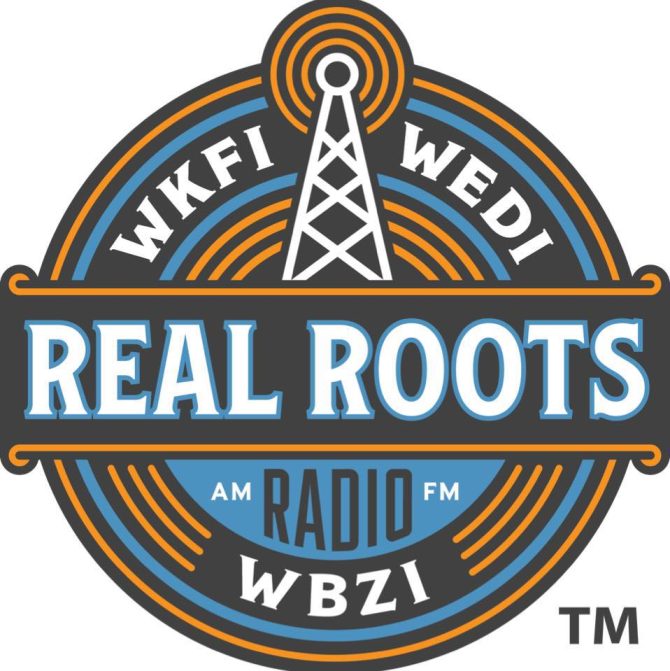
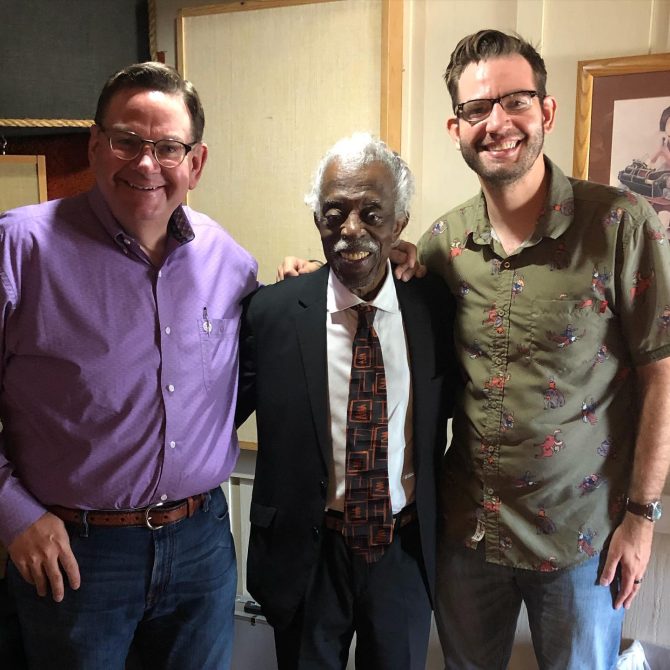
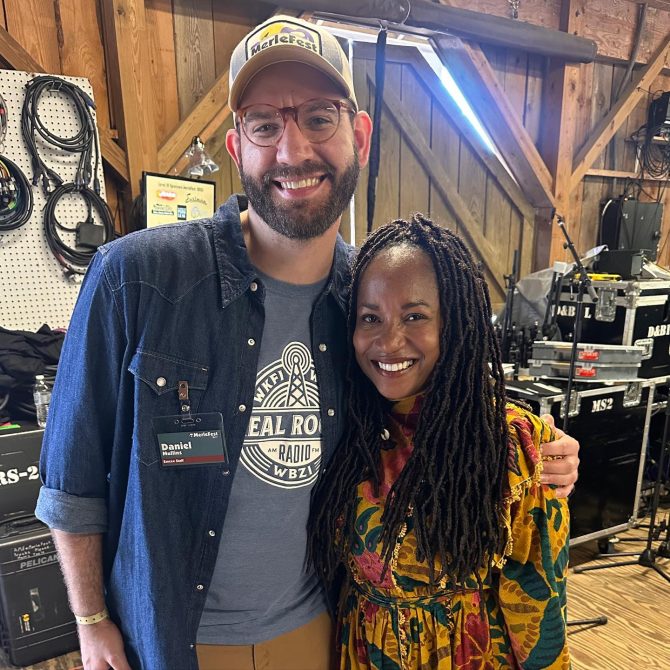
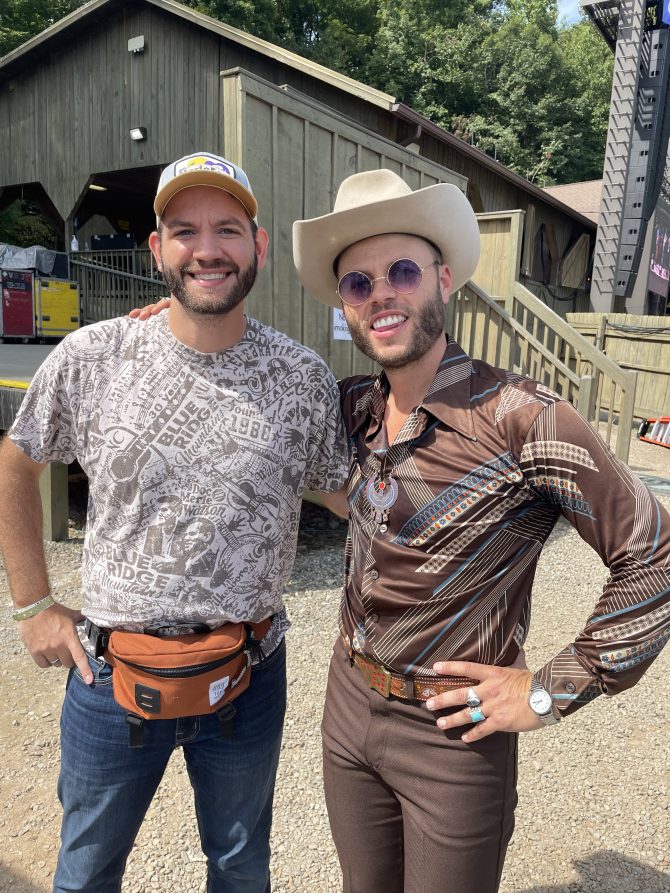
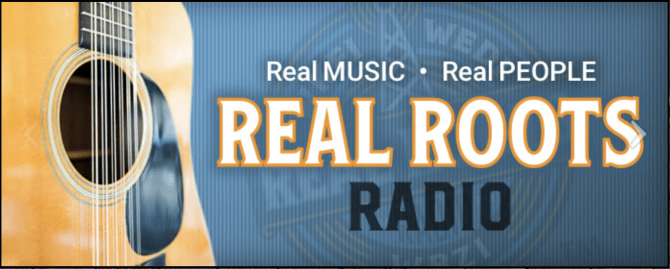


Add a comment to: Shaping Country Music: Black Artists & Their Impact